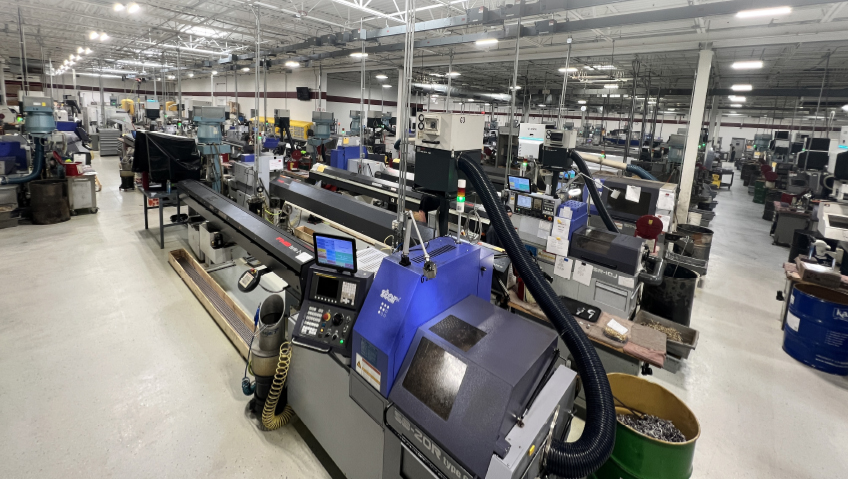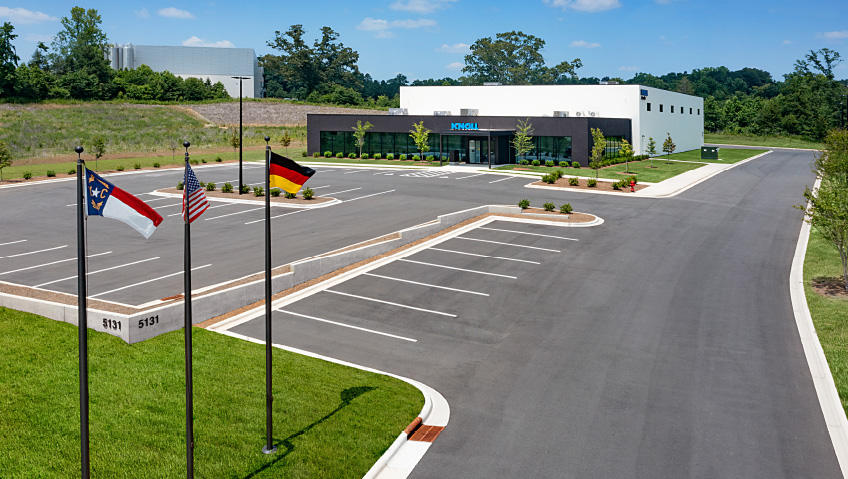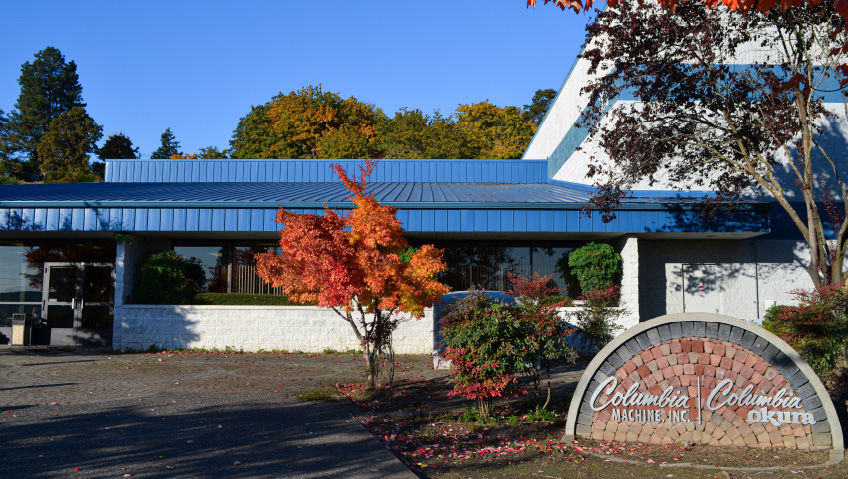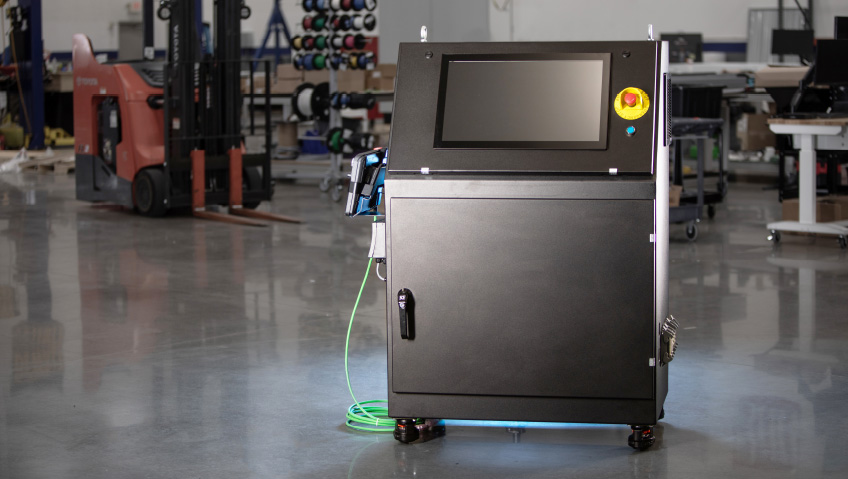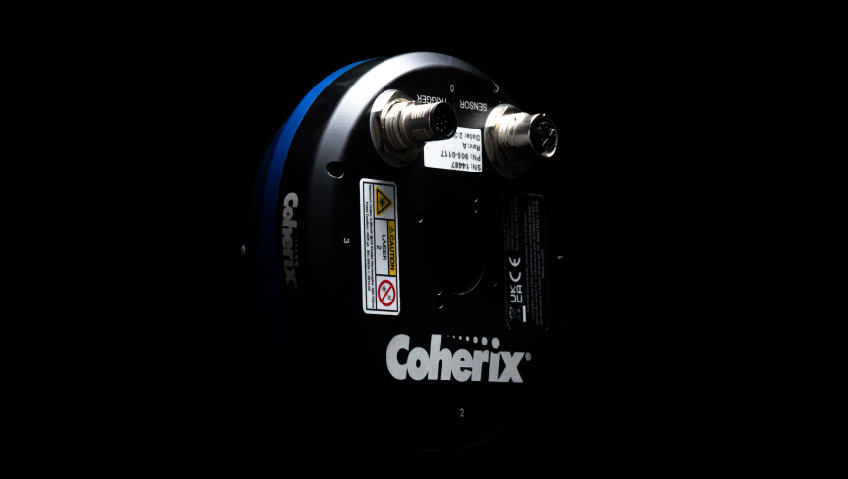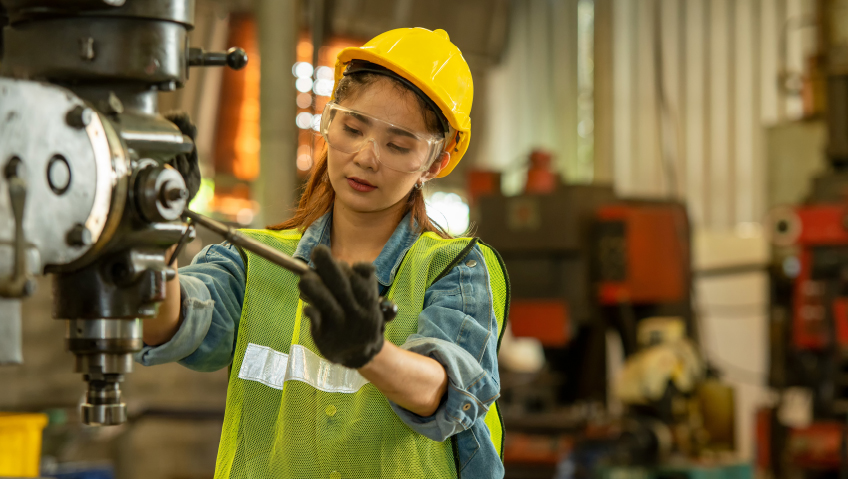Swiss Automation, Inc. is one of the largest manufacturers of Precision Turned Components in the United States, with over half a century of history and experience. After featuring the Barrington, Illinois-based business several times over the last few years, Manufacturing in Focus is checking in once again to hear the latest news and developments.
The additions to the company’s Barrington facility are completed and the space has been filled with $15 million worth of new equipment. The expansion has enabled the team to increase its offerings by introducing milling and outside diameter thru-feed and infeed grinding to its operations.
“We’re trying to expand a little bit more outside our boundaries to get more parts complete to the customers, to try to be a one-stop shop,” says Vice President of Operations, Marc Moran. “We’re really looking at that in the future.”
Providing a broad suite of services has always been a priority for the company. “Years ago, we were really heavily [in] hydraulics,” Moran remembers. “Since the ’08-’09 crash, we decided to get more into medical, government—to mix it all up—and it’s helped us over the years.”
Having this range of capabilities has become even more critical as of late. “The last few years, everyone was so busy you couldn’t get parts done anywhere [from] outside services,” Moran says. “It used to be a one-week turnaround; now you’re talking five to six weeks’ turnaround time. It was really affecting us and our customers. That’s why I decided to try to do more in-house, to do our own grinding and such. It’s only a couple of machines to start, and then we’ll see how it goes. If it keeps expanding, we’ll get to offer even more to our customers.”
The 28,000-square-foot addition to the Cary facility has also been completed, “and we have room for another 50 or 60 machines,” says Moran. “We’re prepared and ready to grow when needed.”
“We’re always willing to expand to meet any new customer demands or needs that are not yet being fulfilled somewhere else,” Production Sales Engineer, Karl Mayle, adds. This commitment includes bringing new employees on board. “We’ve been able to hire some really talented people, even from other industries, that allow us to have different input and insight on how to [improve] the organization and our manufacturing technologies,” he shares.
As the team adds new capabilities, it will continue to offer traditional services to provide a solution for every customer in the hydraulics/pneumatic, medical, aerospace, defense, electrical, automotive, firearms, and electronics sectors. “We’re a job shop, so we make parts for every industry,” explains Moran.
And this team knows how to fully support its customers in each of the industries it serves. “We’re working across several different types of industries, between medical, government, and hydraulics; they all have different requirements and expectations,” says Mayle. “We work really closely with the customer’s procurement and supply chain teams, along with their engineers, so that we’re knowledgeable from the front end and we’re able to support what they need as their projects evolve or are completed.”
The company uses top-of-the-line equipment to manufacture its parts. “We have a variety of the best Swiss equipment,” says Moran, with a list that includes Citizen, Star, Tornos, Miyano, and Eurotech, who has been a big part of the company’s growth. “I think it really sets us apart, having top-notch equipment. Our Swiss machines have up to twelve axes. So what we can offer our customers is to do one operation instead of doing five operations, which will bring the cost down. By offering that quality, top-notch equipment and doing it faster and in one shot, I think it really helps the customers and makes us more competitive.”
“With our range of equipment, it really allows us to be dynamic,” adds Mayle, “because the machines are so adaptable and diverse.”
Using advanced technology is mutually beneficial for the company and the customer. “The new technology out there is what makes us more competitive,” Moran says. “We’re always trying to stay on top of everything so we can get the best parts to our customers and satisfy their needs and try to get the best pricing for them. That’s what makes it all work.”
“If the machines are faster, we can make the parts faster, so they can get more parts quicker,” says Mayle. “With more capable technology, we can make more complex parts for their growth and [support their move] into other projects and industries.”
By producing top-notch products using advanced technology, the team has become a part of the larger picture of American manufacturing. “Manufacturing’s got to keep going,” Moran says. “We have to do it in our country. That’s what built this country, and I really am a strong believer. We have to keep going and keep getting better at it as best we can to compete with the rest of the world.”
Swiss Automation hires experienced workers to operate the company’s advanced equipment. “We have a lot of skilled employees here,” Moran says.
And the team is working hard to ensure there will be enough skilled workers to hire in the future. “Everyone’s having a hard time finding skilled help,” Moran says. The company runs an apprenticeship program to support employee growth internally. “We build our future. That’s really helped Swiss Automation grow over the years. That’s my goal: to keep doing that.”
The team also works with schools, sponsoring programs and donating machines to the local community college and high school. This is particularly important because few students are given the opportunity to train on the type of specialized equipment the company uses. “There are no Swiss-style machines out there in schools,” says Moran. “So being the first ones to be able to do that, I think really helps not only our business, but also other businesses out there.”
When it comes to the future, the team’s goal is “always continuous improvement,” Moran says. “There’s always room to get better and smarter.”
While looking to grow, the team will continue to be careful about expansion, aiming for “strategic growth,” says Mayle. “We don’t want to jump heavily into a market just because it’s moving up; it could crash just as quickly.”
“That’s one thing that I was always very cautious of,” Moran shares. Take the firearms sector, for example. “It was extremely busy for the last couple years, and now it’s really slowed down,” he says. “I didn’t go crazy; I could easily have bought forty machines to keep serving that market, but I knew it wasn’t going to be sustainable.” Instead of putting all its eggs in one basket, the company continued to serve multiple sectors, ensuring that Swiss Automation would be insulated from the ups and downs of any one market. “That’s why I like to diversify as much as I can.”
Employee wellbeing is another strong factor when considering the company’s future. Moran wants to make sure that Swiss Automation is “a good place to work and all my employees are happy. I want to see them all succeed. I try to do the best I can for them. So that’s my goal: we all come to work, work hard, go home, and enjoy life. It’s the American dream.”
Moran also has a personal goal that will keep driving the company forward. Whether or not he reaches his ultimate goal, the company will benefit from his efforts. “By the time I retire, I am hoping I can hit a hundred million dollars in sales,” he says. “Is it achievable? I don’t know. But I’m sure going to try.”

